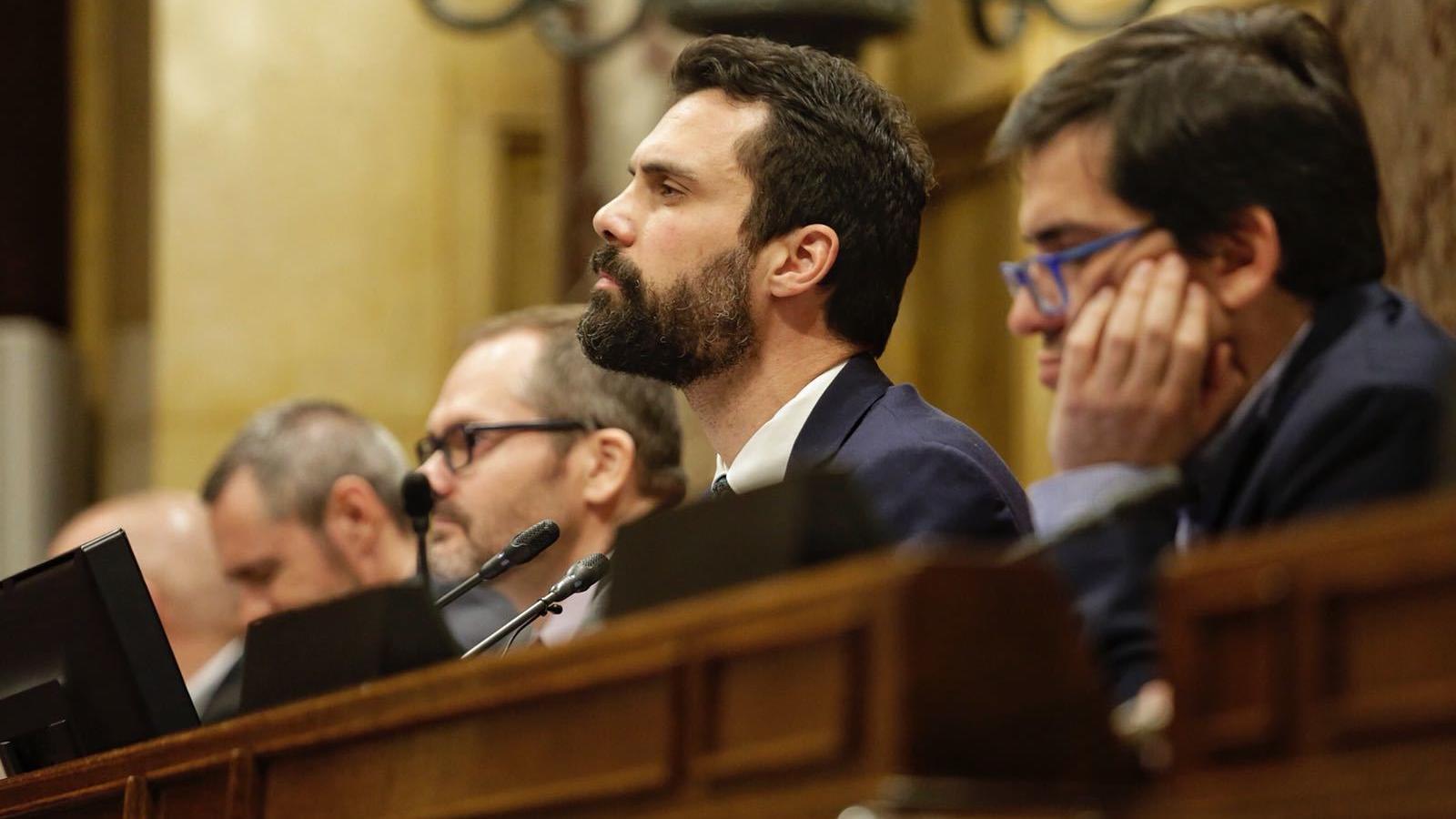Catalan High Court to try former Speaker for disobedience
Prosecutor's Office seeking 16 to 20-month suspension for allowing debate on self-determination and the monarchy

BarcelonaCatalonia's High Court will try former Speaker and current minister for Enterprise and Employment Roger Torrent, alongside the other pro-independence members of the previous Parliamentary Bureau, for having allowed the processing of resolutions on the monarchy and self-determination in autumn 2019. In a resolution issued this Wednesday, the investigating magistrate Maria Eugènia Alegret considers that Torrent, Josep Costa, Eusebi Campdepadrós and Ariadna Delgado could have committed a crime of serious disobedience and gives them a period of ten days to submit their defence briefs.
The High Court order includes evidence provided by the Prosecutor's Office and Vox against the four defendants, whose appeals were overturned by the judge last week. The public ministry is seeking a 20-month suspension and €30,000 fine for Torrent, Costa and Campdepadrós, and a 16-month suspension and €24,000 fine for Delgado, mayor of Sant Vicenç de Castellet (Bages). "As always, we find out about this news through the media. More evidence of a judicial system more concerned about pursuing freedoms than guaranteeing them," Torrent lamented in a message on Twitter.
The accusations consider that pro-independence members of the Bureau disobeyed the Constitutional Court when they allowed the debate and vote on two resolutions. The first contained a commitment to the exercise of the right to self-determination, while the second was a proposed response to the Supreme Court ruling on the 2017 Independence Referendum and reiterated the reprobation of the King. At that time, Torrent was Speaker of the Catalan Parliament, while Costa, Campdepadrós and Delgado were members of the Bureau.
In the order ending the instruction phase, Alegret defended that Parliament "is not a place immune to compliance with legality and principles of normative hierarchy". She admitted that the table does not have to verify the unconstitutionality of all parliamentary initiatives, but it can do so with those that are clearly unconstitutional, and even more so if ordered by the Constitutional Court. The magistrate considered, however, that the four former members of the table can not take refuge in their parliamentary inviolability, which is more linked to freedom of expression than to the decision to allow the processing of two initiatives that were under warning from the TC.
